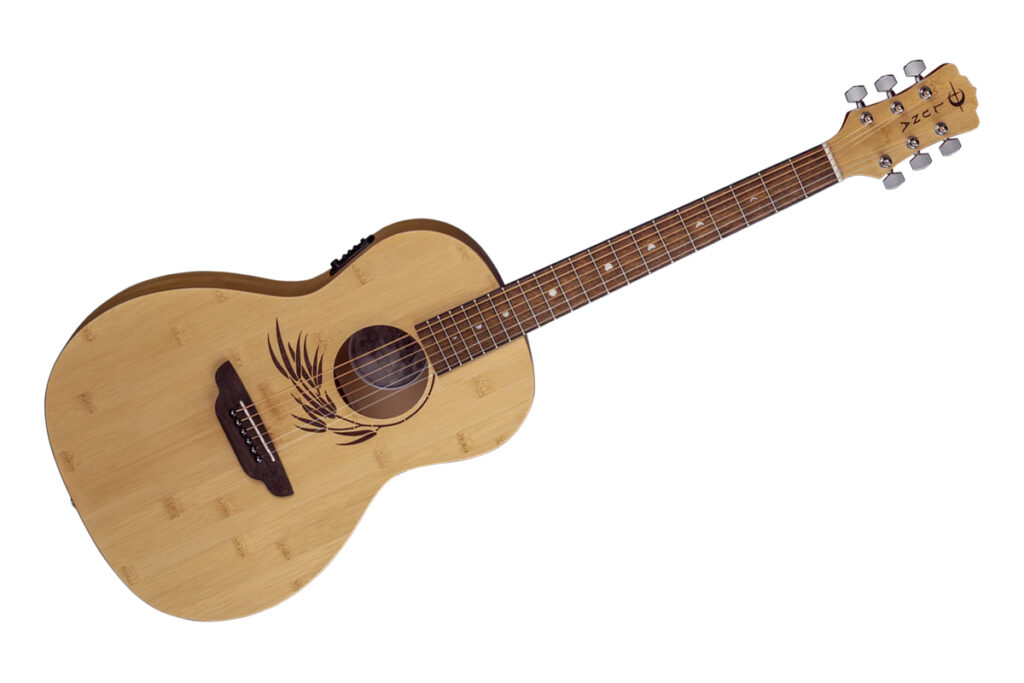EarthTalk®
From the Editors of E – The Environmental Magazine
Dear EarthTalk: I heard we’re running out of so-called “tonewoods” for making acoustic guitars. Are there are alternative materials that eco-minded luthiers can switch to? – B.C., Montgomery. PA

Most guitars out there today are crafted out of some form of spruce, mahogany, maple or cedar. But increased demand and widespread mechanized logging around the world has decimated populations of many of these so-called “tonewoods,” leaving luthiers (guitar makers) with little choice but to start considering alternative materials.
Man-made materials are becoming popular as tonewood alternatives. The most pervasive non-wood guitar material out there now is carbon fiber. Enya, Emerald, KLOS and Lava Music are among the companies pioneering the use of carbon fiber as the base material for their guitars. It has many benefits such as durability—it’s 10 times stronger than steel—and light weight, but it’s hardly sustainable given that it’s made from a non-biodegradable petroleum-based polymer that cannot be recycled or melted down.
A better choice for the eco-minded strummer could be Flaxwood, made by breaking the grain structure of natural wood and injection-molding it into shape with an acoustically sensitive binding agent. The resulting composite is resists changes in humidity, and provides an eco-friendly alternative to tonewoods.
Another good option is a guitar made out of reclaimed wood. Whether the wood was salvaged from a barn, a table or a deck, it could be the perfectly aged tonewood of your dreams. And you’re saving living trees from being cut down to build a new guitar.
Believe it or not, bamboo is also a good substitute for tonewoods. Luna’s Woodland Bamboo Grand Auditorium Acoustic-Electric Guitar is a beauty made out of bamboo—and offers many features and great playability for a modest price.
There are also plenty of alternative tonewoods out there that are from less rare trees. Buying a guitar made of Agathis wood helps preserve the rainforests where the trees grow in Southeast Asia. Koa, basswood, khaya and sapele are all good stand-ins for spruce and mahogany without the conservation baggage. Some Martin models now feature wood from fast growing granadillo trees, native to Venezuela. And Fender has swapped out rosewood for more sustainably grown pau ferro on various guitars in its line.
In 2011, Taylor Guitars, a preeminent acoustic guitar maker, bought a controlling interest in Crelicam, an ebony mill located outside of Yaoundé, Cameroon. In the ensuing years, Taylor has worked with Crelicam on the sustainable sourcing of ebony for use by guitar builders and other craftspeople.
As our planet grapples with environmental challenges, guitar makers are on the cutting edge of harmonizing their craft with sustainability. Indeed, the quest for eco-friendly alternatives to traditional tonewoods has struck a chord in the luthier community.
CONTACTS: The Crelicam Mill in Cameroon, https://www.taylorguitars.com/about/sustainable-ebony; The hunt for alternative tonewoods: how guitar luthiers are looking to save the planet, https://www.guitarworld.com/features/the-hunt-for-alternative-tonewoods-how-guitar-luthiers-are-looking-to-save-the-planet.
EarthTalk® is produced by Roddy Scheer & Doug Moss for the 501(c)3 nonprofit EarthTalk. See more at https://emagazine.com. To donate, visit https://earthtalk.org. Send questions to: question@earthtalk.org.
